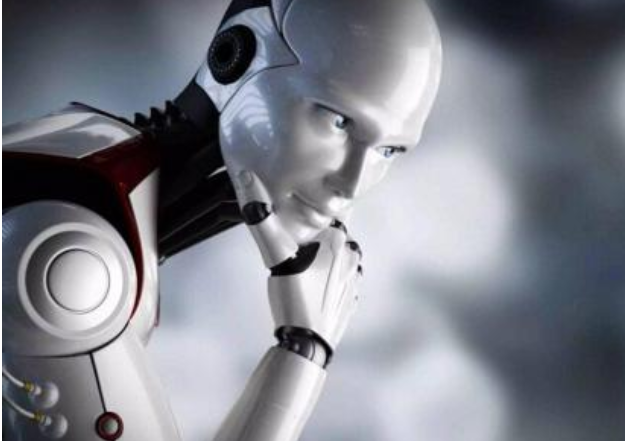Artificial intelligence has become a hot spot in the industry, but many people maintain different positions on the attitude toward artificial intelligence. Experts and scholars are divided into two groups of optimistic support and cautious questioning of the two camps. The lack of sufficient attention to public participation and understanding is the current development of artificial intelligence. Artificial intelligence is an assistant or a threat. It is still difficult to determine.
In today's rapid development of artificial intelligence, how do you view artificial intelligence - assistants, or threats? Today, artificial intelligence has had a profound and widespread impact on society. Conversely, the views and attitudes of scholars, the public and the media will also play an important role in the development of artificial intelligence. Many research institutions and scholars from all over the world have carried out targeted and constructive analysis on this hot issue. Combing and understand these research reports, and help to meet the new round of technological changes brought by artificial intelligence in a more stable and positive posture.

Although the public's attention to artificial intelligence technology continues to heat up, the existing survey on the development of artificial intelligence technology is still in its infancy. The survey report on the artificial intelligence industry in 2017 still focuses on the industry scale, resource allocation and opinion leaders of the artificial intelligence industry. The lack of sufficient attention to public participation and understanding is the basic status quo of the current development of artificial intelligence industry.
It is worth noting that the media, as an important social resource that shapes and guides the public's opinions, has not yet found a way to effectively integrate the public's understanding of artificial intelligence and coordinate and cooperate with expert opinions and industrial development. Despite this, experts from all walks of life have rapidly formed a group of artificial intelligence opinion leaders through mainstream social media, and have had a tremendous impact on the direction of public opinion development. Among them, the technology optimist represented by Facebook CEO Zuckerberg believes that the fear of over-emphasizing the rise in unemployment caused by the risk of artificial intelligence technology is unnecessary; artificial intelligence will ultimately promote human progress rather than replace it. Humanity. In contrast, Bill Gates and Stephen Hawking believe that people lack understanding of the threat posed by artificial intelligence to human survival, and from a long-term perspective, it is a great security risk. This group of experts and industry leaders who emphasize the risks of artificial intelligence development have become the opposite facts of technological optimism in the public media. The current media's integration and guidance of the public opinion is mainly accomplished by presenting the optimistic and cautious worries of the technical disputes and inspiring public discussion.
In fact, relying solely on opinion leaders to attract news traffic and stimulate public attention is far from enough to create a healthy and stable social opinion system to support the healthy development of the artificial intelligence industry. The current public opinion is effectively integrated with the lack of opinions of experts and scholars, mainly in the following two aspects:
The first is the estimation of the influence of public opinions on artificial intelligence, and there is a clear gap with the opinions of experts. In the view of scholars and experts, the trend of artificial intelligence replacing many jobs has become overwhelming. For example, Li Kaifu, chairman and CEO of Innovation Works, predicted that people who work in translation, news reporting, assistants, security, sales, customer service, transactions, accounting, drivers, etc., will have about 90% of all or part of artificial intelligence in the next 10 years. replace. However, in a survey jointly written by Polaris and ASM, more than half of the general public thinks about safety and efficiency, in the fields of heavy manufacturing, logistics, public transportation, medical, military, fire, agriculture and cooking. Artificial intelligence is not up to human work. Scholars and industry leaders are very optimistic about the impact of artificial intelligence, and the public is relatively conservative and even cautious.
Secondly, the attitude towards artificial intelligence has significant differences between the public and expert groups. Experts and scholars are divided into two camps: the optimistic support and the cautious questioning of the future prospects of artificial intelligence. According to existing surveys, it is difficult to effectively classify public opinions with explicit support and anxiety risks. In the investigation report jointly written by Polaris and ASM, there is concern, lack of confidence, confusion, excitement and excitement about the future of artificial intelligence. The number of optimistic people accounted for 27%, 25%, 9%, 20%, 30%, and 33% of the respondents, respectively. Relative to the position of industry and academic opinion leaders, the public's attitude toward the future of artificial intelligence is more moderate and conservative, and more holding a wait-and-see attitude.
The differences and differences between the public understanding and expert opinions mean that the existing social intellectual resources have not been effectively integrated in dealing with the social changes brought about by the development of artificial intelligence and the major issues concerning the development of human civilization. This not only creates resistance to the resolution of major ethical and legal issues of artificial intelligence, but also increases the risks that may arise from the future development of artificial intelligence.
600 Puffs Disposable ecig Geek Bar Vape have a completely enclosed design, reducing the need for charging and replacing cartridges. The no-charge design also reduces the occurrence of faults. It is understood that with rechargeable e-cigarettes, each cartridge needs to be charged at least once and the battery efficiency is extremely low, while the design of disposable ecig can solve this problem very well.
600 Puff E-Cigarette,600 Puff E-Cigarette For Sale,Best 600 Puff E-Cigarette,Best 600 Puff E-Cigarette For Sale
Shenzhen E-wisdom Network Technology Co., Ltd. , https://www.healthy-cigarettes.com